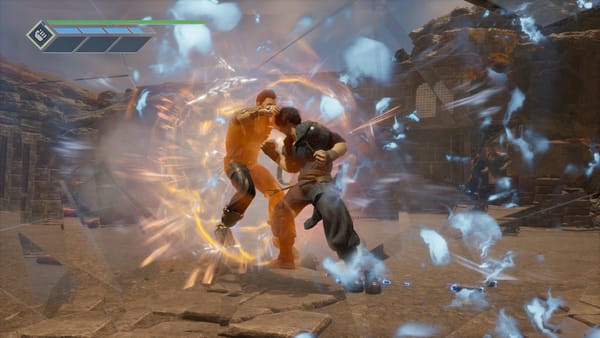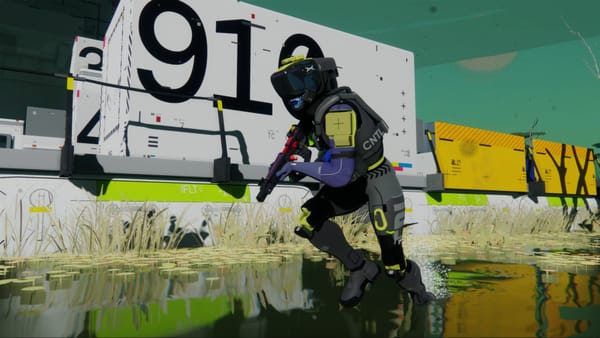#229: Blood sacrifice
What does John Riccitiello's exit mean for Unity? Nothing, really, but feel free to enjoy it.
Here’s something I didn’t think I’d ever get to type: John Riccitiello is gone. The widely loathed CEO of Unity is ‘retiring effectively immediately’ — gosh, there’s a euphemism — after nine years at the helm of the engine maker. During his stewardship Riccitiello has taken the company public and tanked first its share price and then its reputation, laying off staff in their hundreds and calling developer partners “fucking idiots” before presiding over the miserable Runtime Fee hooplah which, it seems, finally prompted his downfall.
If you can call it a downfall, anyway. While this is clearly a day for celebration, this is not quite the red-letter day it could have been. For one thing, Riccitiello is retiring, which means he is walking off into the sunset with some generous financial compensation. It is a sad fact of capitalism that, once you reach a certain level of seniority, there is no such thing as failure: win or lose, you make out like a bandit. But it still sticks in the craw to see someone who has done so much damage to not just Unity as a company, but also the global community of developers who work with it, sent on his way with what I can only assume is a pretty fantastic payday.
Then there is the question of his eventual replacement. James Whitehurst, a former IBM president, has been appointed interim CEO while the Unity board sets about finding a permanent successor. There is no suggestion in the announcement PR that Riccitiello’s departure will prompt a change of strategy, no admission that things went south on his watch and that a course correction will follow. While Hit Points is yet to sit on the board of directors at a technology company (call me!) I have been around enough of this stuff over the years to understand that Unity’s situation required a blood sacrifice — a way of acknowledging that it fucked up without needing to actually say it, of implying that change is coming without committing to any sort of actual, like, change.
Indeed, while Riccitiello may once have been Unity’s god-king, since it went public he has only really been a frontman, the public face of decisions made with and by the board members that really pull the strings. One such character, Roelof Botha, is a partner at Sequoia Capital, an early investor in Unity that, with some 24% of shares, was the firm’s biggest institutional investor when it went public in 2020 (and likely one of the main agitators for the IPO). Botha’s story at Unity is the venture capital playbook at its most basic: get in early, increase your holding as the company grows, push for an IPO payday then, after the inevitable plateau has been reached, flick the enshittification switch. (Botha is taking over from Riccitiello as chairman of the board; you may read into that what you will.) Unity’s board swelled from 10 people to 13 following the controversial merger earlier this year with monetisation-platform-thing IronSource, which once shipped a release with malware so bad its software was blacklisted from Windows. I do not think, with all this in mind, that Riccitiello’s departure suggests a brighter future for Unity or its developer partners. One day, in fact, we may even miss him. A bit. Maybe.
So no, I do not think this changes much in the scheme of things. The developers who have spent the last few weeks planning to abandon Unity’s engine at the earliest possible opportunity will still be doing so today. I imagine Botha and co will ensure another nefarious scheme is along in due course. And of course, Riccitiello is heading off to the golf course with another zero or two in his bank account. But let us all take a moment to enjoy what, in late-stage capitalism, is that rarest of sights: bad decisions having actual consequences, their architects — or one of them, at least — paying the price for the disaster they have wrought. So long, John. Don’t let the door hit you in the arse on your way out.
MORE!
- Acquisition Blizzard is expected to close this Friday, finally bringing an end to an interminable 21-month saga that has all but emptied the big bucket of Hit Points hot takes. Yesterday Activision said it does not expect to start putting its games on Game Pass until next year. Not sure I buy this, to be honest — while I am sure Activision would very much like you to preorder Modern Warfare III rather than hold off until it’s on Game Pass, surely Microsoft will be pushing for some kind of immediate dividend from the acquisition, particularly given its rather tepid Q4 release slate.
- The game industry has been hit by over 6,000 layoffs so far this year. September was the worst month, with 17 studios cutting staff. Grotty, grotty times, as Hit Points mused to paid subscribers last week. (Sorry about that one, by the way. Seems I really bummed a lot of you out.)
- In related news, an entire team of QA contractors working for Keywords on BioWare’s Dragon Age: Dreadwolf have been laid off after the studio decided against renewing their contract. In what I’m sure is merely a frightful coincidence, last year the 13-strong team formed Canada’s first ever game-industry union. Ugh.
- Venture capital investment in the game industry has plummeted to its lowest level in three years. Among the justifications are the end of the Covid-era boom and the rapid bursting of the Web3 bubble. (Also, money is no longer free.)
- Daedelic’s mea-culpa tweet following the botched launch of The Lord Of The Rings: Gollum was written by ChatGPT, according to a new report. Seems plausible enough given that said apology called the game The Lord Of Ring: Gollum. Deary me.
- The Cyberpunk 2077 rescue operation cost CD Projekt over $120m, it says here.
- It’s Steam Next Fest time! Hit Points is busy with other things this week but hopes to find time to check out Europa and Japanese Drift Master, among others.
That will do! I’m expecting delivery of a Meta Quest 3 today — though it’s being handled by Yodel, the worst courier in the galaxy, so I’m not holding my breath — and plan to put it through its paces in a subscriber-exclusive edition later this week. Join us! Please?





